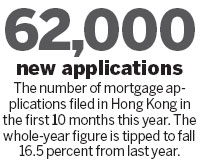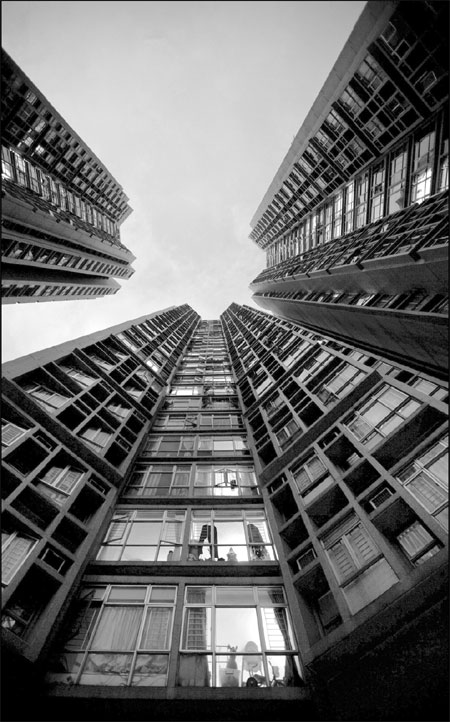City's mortgage loan to shrink nearly 20% in 2012
Updated: 2012-12-18 06:43
By Li Tao(HK Edition)
|
|||||||||
|
Blocks of apartments stand in the Lam Tin area of Hong Kong. City's mortgage applications are expected to slump by nearly 20 percent this year over 2011 due to government measures. Daniel J. Groshong / Bloomberg |

Hong Kong's mortgage loan applications are expected to slump by nearly 20 percent this year over 2011 as a series of government measures imposed on the property sector, including the Special Stamp Duty (SSD) and heightened thresholds of down payment have affected the market over the year, according to the local mortgage broker mReferral Mortgage Brokerage Services.
The total number of new mortgage loan applications was only 62,000 in the first 10 months in the city, with total cases expected to reach less than 80,000 for the full-year of 2012, representing a 16.5 percent decline over the aggregate mortgage applications of 95,800 a year ago, said Sharmaine Lau, chief economist of mReferral, who added that the total new mortgage drawdown is likely to plunge 13 percent to only HK$198 billion this year.
The government's latest moves in late October to curb the city's heating home prices, including the 5-percent rise in punitive SSD and an additional unprecedented 15 percent Buyer's Stamp Duty (BSD) on home purchases by companies and non-Hong Kong permanent residents, will start to be reflected in mortgage data released from January 2013 as registration normally takes six to eight weeks, according to Lau.
Lau expects mortgage loan applications to dip at least 10 percent in January 2013 over December of 2012 on the toughest government measures ever in curbing speculative investment activities in the city.
The number of mortgage applications by mainland investors also declined in 2012 on the lifted down-payment requirement by the government, which registered at around 9.9 percent among all applications in the first 11 months this year compared with the 11.1 percent for the full year of 2011, according to mReferral data.
Despite the tightening mortgage loans for second-home buyers erodingthe purchasing power of some local investors, the introduction of the BSD will blow away more non-local home buyers, making the city's residential market the playground led primarily by Hong Kong people next year, said Lau.
The low lending rate, which has hoovered at an average 2.2 percent for quite a while in the city, is expected to stagnate next year, given that hot money is continuing to flow into Hong Kong on the US' latest rounds of quantitative easing policy, which will drive the local banks to compete aggressively for new customers amid the ample liquidity.
Mortgage loan applications on small-to-medium sized residential transactions remain the main forces in the market, with mortgage numbers on homes sold between HK$2 million and HK$5 million accounting for 54.6 percent of all new applications in the first 11 months this year, according to mReferral.
Unless the external environment becomes twisted significantly in 2013, the average mortgage rate is likely to remain below 2.5 percent next year, according to the mortgage brokerage services firm.
litao@chinadailyhk.com
(HK Edition 12/18/2012 page2)
